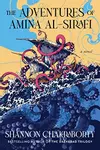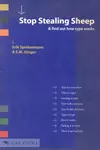
Avery
I found it surprisingly tough to finish this book. It wasn't the second-person perspective (which I didn't notice until reading other reviews), and it wasn't that the story lacked any interesting ideas, but somehow everything felt jumbled together in a way I couldn't get fully engaged with.
Surprisingly, the most interesting parts of the story had nothing to do with the overt “theme” of virtual/game worlds advertised by the cover text, celebrity testimonials etc. Hidden behind the seemingly pointless talk of LARPing and orcs is a story about a threat that is much closer (as in, it could happen tomorrow) than any augmented reality overlay or VR world. The exception to this was the SPOOKS game, which ironically wouldn't require any technology more advanced than a cell phone.
In general, I feel like this story would have been more compelling and easier to follow if it was present-day fiction rather than some vague near-future sci fi.
Took a while to get into it but I enjoyed the main game-related stuff. Does a good job of making it feel complex without getting bogged down in exposition trying to explain how it works.
The tone and characters felt a bit inconsistent to me, between intrigue around the game and the rest of what happens on the planet.
It took me a little bit to get used to the new viewpoint, but it ended up being fun. Stross' choice to have each book be almost a completely different genre within the same setting can make it feel a little all over the place, and it felt like the superhero theme here aged a little worse than the others.
Unfortunately I'm too into his “lovecraft with math” premise to put this series down any time soon.
Very recommendable! Light fantasy vibes while feeling very unique. Interesting world building without feeling heavy or hard to ramp up on. Loved all the characters - they feel deep and well-rounded. Much is hinted at during the story without being immediately explained, which gives a feeling of mystery without getting heavy with exposition or requiring too much reading between the lines.
Parts of the book felt like a perfect D&D campaign, where a hook leads you off in one direction, but then stuff happens and you end up doing something completely different.
It wasn't particularly thought-provoking, but easy, fun and different. Refreshing <3
Quite comprehensive and clearly written, exactly what I was looking for after reading Stop Stealing Sheep. It was funnier than I expected, the author writes with a lot of character and clearly has a bone to pick with computers, which was entertaining as a web developer reading this to learn more about typography. It's obviously a beautifully crafted book and I'm glad to have read it as a physically printed book rather than digitally. Feels like Bringhurst would have approved.
Full disclosure, I didn't read all of the appendices (which make up like 1/3 of the book)
Pretty entertaining as usual. Also as usual – a confusing amount of repetition of the same exposition throughout the book? Explaining who Angleton is, what the deal with the violin is, what's K-Syndrome etc.
I guess I can understand wanting to make the books readable out of order (though it's not my favourite), but it seems like these things are repeated a lot even within a single book. Reduces the enjoyment a bit to feel like you want to fast-forward through a section.
With all the AI news these days, I've been thinking about how everyone seems to expect a human-level intelligence to sprout, fully formed, from some startup's churning data centers. Of course, no thought ever goes into the personhood of such a being - it's always about how it will be useful as a kind of product-slave.
It was refreshing to read this novella, which explores an alternative future. What if we end up with basic intelligences that we have to raise as if they were children? As a parent of a toddler, this felt pretty realistic. Of course, once you've built a relationship like this, you start to think of this “software object” as a real person...
Hard to know how to feel about this book.
Seems like a pretty sad existence, driven home by the author's note. The characters and dialogue are bizarre. I felt like much of it went over my head. I think I might find an analysis of the themes online and then go watch the movie.
I expected more sci-fi, but it's mostly about the drug epidemic. Kind of reminds me of reading Haldeman's The Forever War and realizing it was as much about Vietnam as it was about space.
I'm not sure if it written differently, or just that I've gotten used to the style, but I found the third book in this series much easier to read than that first two. The pacing seemed a little more even, with the exciting events spread out a little more. The tradeoff is that the reveals didn't have quite the same impact as in the last two books, but that didn't bother me too much.
I'm glad that I read it before I forgot too much of what had happened earlier in the series!
While it didn't quite hold up to the level of awe I felt for weeks after reading Blindsight, Echopraxia does have its share of cool ideas about the universe. I think it was worth the read, even though it also falls into the Wattsian pattern of having not much happen until a good 60-80% of the way through.
This book was more than I was expecting. It does a great job describing the reasons one might want to abandon Christianity, without pulling any punches. It does an alright job at giving some reasons to stay.
What I wasn't expecting was the inspiring message in the third section, describing the possibility of a more open, all-encompassing view of how we could live, whether as Christians or not.
The book doesn't necessarily deliver mind-blowing revelations in every chapter, and some passages flow better than others, but the author was able to find ways to clearly articulate feelings that I've felt for a while. I found myself remarking at, and making note of several lines per chapter, which is pretty good as far as I'm concerned!
I only wish there was a version of this book written for an audience that didn't grow up in the Christian church, so that I can share this vision of the world with my friends from a more secular background!
I spent about 4/5 of this book wondering whether I should bother to finish the series, and figured maybe I should take a break and read something else afterwards.
I'm not totally sure what happened next, but I picked up the sequel and started reading it immediately after finishing. I guess it's good??
Fun premise though it was frustrating at times. Felt like large plot holes were introduced in order to make it follow a typical story narrative. I will probably give the sequel a chance to see if it improves.
Characters make many seemingly crazy decisions, especially near the beginning -- your best idea for an escape button is.. medieval England? Before even checking to see if your phone will work from there? Why not like.. the roof of some building in the same city? Also seems ridiculous that the wizards would make their robe/hat/staff an actual requirement of casting all their magic.. sure, you can wear them if you want but it's just an unnecessary complication added to justify all the wizards in the story being dressed as wizards, and it gets predictably taken advantage of.As a side note, it seems hard to believe that a bunch of independent computer nerds would rely on one centralized shell without having any programs hosted on their own computers as backup in case the shell stopped working.
Took me a while to get through it all, but felt well worth it. I feel convinced for now that this is an important issue. The fact that the author has such a strong/respected medical background in the same domain as his argument lends a lot to his opposition to commonly-held beliefs in the wider medical (and general) population.
Lustig explains things I never thought about when it comes to what the actual effect of sugar is on the body. I also appreciated him going into more detail about how important fiber is as well. It helped clear up a lot of the confusion I felt concerning the advice I have received from doctors/others about what foods and activities are healthy.
The criticism I read about his work online seemed to focus mainly on his neglect of the dose-dependent nature of the problem with sugar, and while that wasn't directly addressed in this book, it seemed like, especially in the second half of the book, the focus on sugar-sweetened beverages and heavily processed foods helped.
I appreciated the effort to address some steps to change policy in the last chapter, though it did feel like the weakest part of the book. The book did occasionally feel repetitive, but it came in handy more times than not, reminding me of parts that I hadn't absorbed fully, and helping with anyone jumping around the book.
In general, I think this book has an important message about realizing where to draw the line when it comes to people being considered “rich“.
It felt a little unfocused at times, the author's own strong dislike of anything resembling a class-based society sometimes gets in the way of a clear exploration of the ideas.
That said, it felt pretty realistic in its suggestions and had some interesting ideas. Definitely worth thinking about for many people.
This felt like a fairly comprehensive account of the development of philosophy in the west, but it's hard to know how much I was able to absorb.
The book is written in a way that I felt was very scattered. Some sections have an incredible amount of seemingly unrelated detail, such as the relationships between each Pope and their contemporary kings/emperors throughout the period characterized by the power of the Catholic Church.
Each philosopher ends up being described in relation to the ideas before and after their work. I felt that this confuses the timeline and adds a lot of speculation about how the older philosopher may have responded to newer ideas.
The last section feels dated at times with references to current events, but the majority of the book addresses ideas old enough not to have this feeling.
As far as content is concerned, I found the book spent a lot of time on metaphysical theories, most of which seemed to have limited justification. Of course that's probably more of a commentary on the philosophers than the author.
In general, a more focused version of this book probably would have been closer to what I had personally hoped for. Spending more time was on fewer philosophers would have helped keep them all clear in my head and fully understand the ideas.
I enjoyed this exploration of “vintage” computer systems. It differed from some other hacking tales I've read in that it was from the perspective of a person watching the hacker rather than that of the hacker. This gives it a fun detective story vibe.
The hacking itself was pretty low stakes and a lot of time was spent talking about how the hack wasn't bad enough to warrant any law enforcement getting involved. Somewhat frustrating, though probably not as much as it was for the writer at the time.

















































